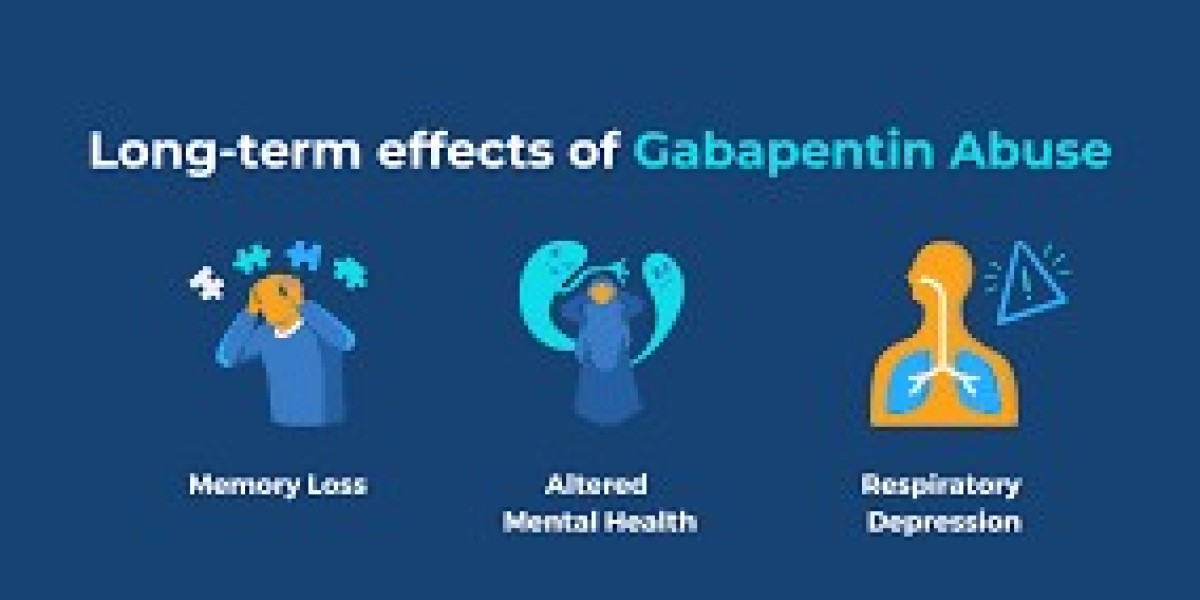Gabapentin, the active ingredient in brand-name medications like Neurontin and Gralise, is a widely prescribed medication used to treat various conditions, including epilepsy, neuropathic pain, and restless legs syndrome. While it is generally considered safe and effective for many patients, concerns have been raised about its potential side effects, particularly its impact on cognitive function and memory. One of the most pressing questions among patients and healthcare providers is: Does gabapentin cause long-term memory problems, even after stopping it?
In this blog, we will explore the relationship between gabapentin and memory, examining the available evidence, potential mechanisms, and what patients should know about this medication. By the end, you will have a clearer understanding of whether gabapentin poses a risk to long-term memory and how to approach this concern with your healthcare provider.
What Is Gabapentin, and How Does It Work?
Gabapentin is an anticonvulsant and Neuropathic Pain medication that was originally developed to treat epilepsy. It works by modulating the activity of certain neurotransmitters in the brain, particularly gamma-aminobutyric acid (GABA), which helps calm overactive nerve signals. While its exact mechanism of action is not fully understood, gabapentin is believed to reduce abnormal electrical activity in the brain and alter the way the body perceives pain.
Over time, gabapentin has gained approval for other conditions, including postherpetic neuralgia (nerve pain after shingles) and restless legs syndrome. It is also commonly prescribed off-label for anxiety, insomnia, and chronic pain conditions like fibromyalgia.
Common Side Effects of Gabapentin
Like all medications, gabapentin comes with a range of potential side effects. Most of these are mild and temporary, resolving as the body adjusts to the medication. Common side effects include:
Dizziness
Drowsiness
Fatigue
Nausea
Swelling in the extremities
Weight gain
Difficulty concentrating
However, some patients report more concerning side effects, such as cognitive impairment, memory problems, and mood changes. These reports have led to questions about whether gabapentin can cause long-term memory issues, even after discontinuation.
Gabapentin and Memory: What Does the Research Say?
The relationship between gabapentin and memory is not fully understood, and research on this topic is limited. However, some studies and anecdotal evidence suggest that gabapentin may affect cognitive function, including memory, in certain individuals.
Short-Term Memory Issues
Many patients taking gabapentin report short-term memory problems, such as forgetfulness, difficulty recalling words, or trouble concentrating. These effects are often dose-dependent, meaning they are more likely to occur at higher doses. In most cases, these memory issues resolve once the medication is discontinued or the dosage is reduced.
Long-Term Memory Problems
The question of whether gabapentin causes long-term memory problems is more complex. There is currently no conclusive evidence that gabapentin directly causes permanent memory impairment. However, some patients have reported persistent cognitive difficulties even after stopping the medication. These reports raise the possibility that gabapentin may have lingering effects on the brain in susceptible individuals.
Potential Mechanisms
Researchers have proposed several mechanisms by which gabapentin might affect memory:
GABA Modulation: Gabapentin increases GABA activity in the brain, which can have a calming effect but may also lead to cognitive slowing or memory issues in some people.
Neuroplasticity: Long-term use of gabapentin may alter the brain's ability to form new connections, potentially affecting memory and learning.
Withdrawal Effects: Abruptly stopping gabapentin can cause withdrawal symptoms, including confusion and memory problems, which may be mistaken for long-term effects.
Factors That May Influence Memory Problems
Not everyone who takes gabapentin will experience memory issues. Several factors may increase the risk of cognitive side effects, including:
Dosage: Higher doses of gabapentin are more likely to cause side effects, including memory problems.
Duration of Use: Long-term use of gabapentin may increase the risk of cognitive impairment.
Age: Older adults may be more susceptible to memory problems due to age-related changes in brain function.
Underlying Conditions: Patients with pre-existing cognitive issues or neurological disorders may be at higher risk.
Polypharmacy: Taking gabapentin with other medications that affect the brain, such as opioids or benzodiazepines, may increase the risk of memory problems.
What Do Patients Say?
Anecdotal reports from patients provide valuable insights into the real-world effects of gabapentin. Many patients describe experiencing "brain fog," forgetfulness, or difficulty concentrating while taking the medication. Some report that these symptoms improve after stopping gabapentin, while others claim that their memory problems persist long after discontinuation.
It is important to note that anecdotal evidence is not a substitute for scientific research. However, these reports highlight the need for further investigation into gabapentin's potential long-term effects on memory.
What Should You Do If You're Concerned About Memory Problems?
If you are taking gabapentin and experiencing memory problems, it is essential to discuss your concerns with your healthcare provider. They can help determine whether gabapentin is the likely cause of your symptoms and recommend appropriate next steps. Here are some actions you can take:
Monitor Your Symptoms: Keep a journal of your memory problems, including when they occur and how they affect your daily life.
Review Your Dosage: Your doctor may adjust your dosage or switch you to a different medication to see if your symptoms improve.
Consider Tapering: If you decide to stop gabapentin, your doctor may recommend tapering off the medication gradually to minimize withdrawal symptoms.
Explore Alternatives: If gabapentin is not essential for your condition, your doctor may suggest alternative treatments with fewer cognitive side effects.
Seek Cognitive Testing: If your memory problems persist, your doctor may recommend cognitive testing to rule out other causes, such as dementia or depression.
Conclusion: Weighing the Risks and Benefits
Gabapentin is a valuable medication for many patients, providing relief from debilitating conditions like epilepsy and neuropathic pain. However, like all medications, it comes with potential risks, including the possibility of memory problems. While most memory issues associated with gabapentin are temporary and resolve after discontinuation, some patients report persistent cognitive difficulties.
If you are concerned about gabapentin's effects on your memory, it is crucial to work closely with your healthcare provider to weigh the risks and benefits of continued use. By staying informed and proactive, you can make the best decision for your health and well-being.
Frequently Asked Questions
1. Can gabapentin cause permanent memory loss?
There is no conclusive evidence that gabapentin causes permanent memory loss. However, some patients report persistent cognitive issues after stopping the medication.
2. How common are memory problems with gabapentin?
Memory problems are not among the most common side effects of gabapentin, but they do occur in some patients, particularly at higher doses.
3. Will my memory improve if I stop taking gabapentin?
For most patients, memory problems improve after stopping gabapentin or reducing the dosage. However, individual responses may vary.
4. Are there alternatives to gabapentin that do not affect memory?
Yes, there are alternative medications for conditions like epilepsy and neuropathic pain. Discuss your options with your healthcare provider.
5. Can gabapentin be safely used long-term?
Gabapentin can be used long-term under the supervision of a healthcare provider. Regular monitoring can help minimize the risk of side effects, including memory problems.
By addressing the question of whether gabapentin causes long-term memory problems, this blog aims to provide clarity and guidance for patients and healthcare providers. If you are taking gabapentin and experiencing memory issues, remember that you are not alone, and help is available. Always consult your doctor before making any changes to your medication regimen.









